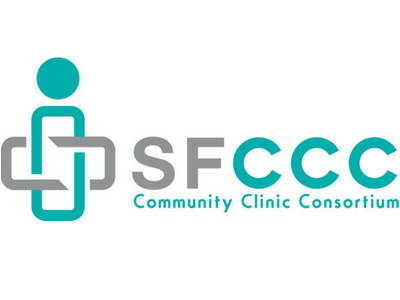AHEC Scholars Spotlight: Sophia Tavasieff
The Area Health Education Center (AHEC) program is designed to enhance access to quality health care by improving the supply and distribution of healthcare professionals via strategic partnerships with academic programs and community organizations, like SFCCC. Since 2004, SFCCC has served as the AHEC site for the city of San Francisco.
As part of this program, we host an annual cohort of AHEC scholars, health professional students who want to supplement their education by learning more about community primary care to improve the health of underserved San Francisco residents. The program equips students with the knowledge and the skills for them to be successful in the primary care health system and to deliver high quality care to underserved patients.
Today, we’re spotlighting a scholar from our 23-24 cohort, Sophia Tavasieff. Sophia received her Community Health Worker Certificate from City College of San Francisco, and is now pursuing a BA in Sociology at the University of British Columbia. She currently works as a Research Associate at the San Francisco Department of Public Health Center on Substance Use and Health.
I came upon the AHEC Scholars Program at the internship fair for my Community Health Worker Program at CCSF. I was passionate about advancing health equity through public and community health and was trying to learn from as many people as possible. Given the complexity of the interpersonal, cultural, and individual factors at play for many of the people we work with in community health, the myriad of structural factors that intersect to create their conditions, and the difficulties managing care while dealing with the US healthcare system, I felt it was important to learn from the upcoming primary care providers in the AHEC Scholars program. Much of what I knew came from a social work, clinical research, or activist lens and I was keen to hear more from people working on the medical side of things, which was where many of my fellow AHEC scholars were coming from.
I really appreciated the opportunity to share a community health perspective with primary care providers in other fields, and learn more about what their perspectives were as medical students, dentistry students, and other community health workers. I was also pleased to gain a better understanding of the day-to-day operations of medical clinics, which better equipped me to assist my clients in systems navigation. I learned about how providers approach differential diagnoses, and what they’re thinking about when working with patients, which gives me greater insight into how I can advocate for my clients. I was also able to learn about the ways information is shared and communicated throughout clinics, the barriers to creating a Patient-Centered Medical Home, as well as insurance and billing practices, which equipped me to better assist my clients in navigating this complex system.
I feel that the most important thing we can do as individuals entering a profession that puts us into such intimate relationships with clients whose quality of life, or sometimes life itself, can be in our hands, is to do our utmost to approach our work with compassion, care, understanding, and humility. This opens up trust between ourselves and our clients, putting us in a position to respect and honor their autonomy, background, and desires, without judgment or feelings of superiority. Every person we meet has a million different factors going into their health decisions, and the more time we take to listen to and understand their wishes with compassion, the better off they will be.

